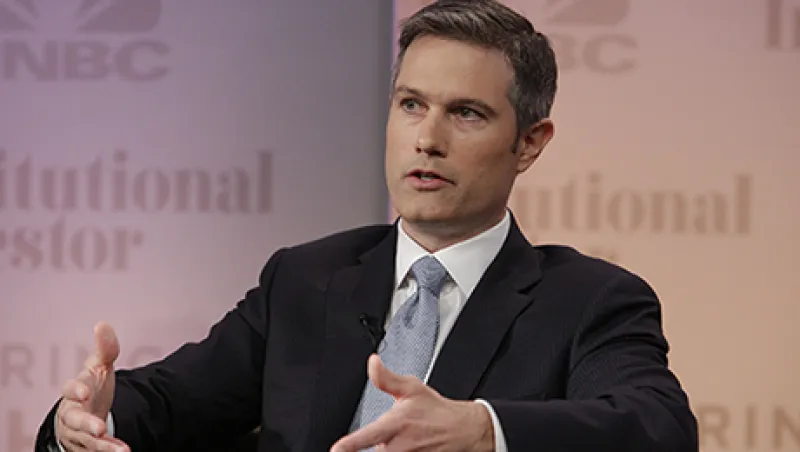
CNBC EVENTS -- Delivering Alpha 2014 -- Pictured: Michael Peltz, Editor, Institutional Investor moderates the Best Ideas - The Next Generation panel with Josh Birnbaum, Chief Investment Officer, Tilden Park Capital Management at the CNBC Institutional Investor Delivering Alpha Conference in New York -- (Photo by: Heidi Gutman/CNBC)
CNBC/Heidi Gutman/CNBC


